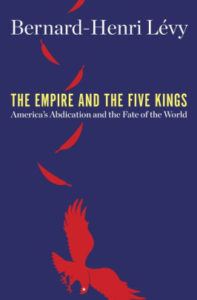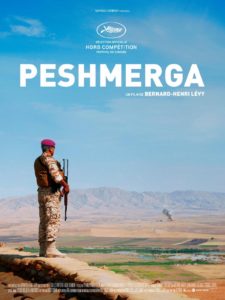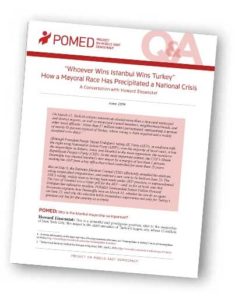The Turkish attack on Syria endangers a remarkable democratic experiment by the Kurds, Professor of Modern Middle Eastern History at the University of California, Los Angeles. Syrian Kurds have realized the dream of the 2010-2011 pro-democracy uprisings across the Arab world, he writes for the Conversation:
Rojava’s charter guarantees freedom of expression and assembly and equality of all religious communities and languages. It mandates direct democracy, term limits and gender equality. …In a region where religion and politics are often intertwined, the Kurdish state is secular. Religious leaders cannot serve in politics. Rojava’s charter even affirms the right of all citizens to a healthy environment. Surrounding countries, including Syria, also have constitutions with eloquent endorsements of political and human rights. In Rojava, however, the constitution is actually in effect.
 The withdrawal of US forces from northern Syria and exposed the Kurds living there to Turkish assault is a “fundamental betrayal” of both the Kurds and American values, said the French philosopher Bernard-Henri Lévy.
The withdrawal of US forces from northern Syria and exposed the Kurds living there to Turkish assault is a “fundamental betrayal” of both the Kurds and American values, said the French philosopher Bernard-Henri Lévy.
“It is a terrible deceit for democracy, a nightmare for the Kurdish people and, alas, completely predictable,” he told the Guardian. Lévy published a book earlier this year, The Empire and the Five Kings, predicting that America would abandon its role in the region, leaving it to the ambitions of Russia, China, Turkey, Iran and Saudi-backed Sunni radical Islam.
The Kurdish-controlled areas of northern Syria, referred to by Kurds as Rojava, has been successful against astonishing odds, laying the foundations of a flawed but ambitious local democracy, notes a journalist with the Fuller Project for International Reporting:
Kurds in Rojava worked to fulfill a plan for Kurdish democracy at least three decades in the making. That plan included equal representation of women and minorities; fair distribution of land and wealth; a balanced judiciary; and even ecological preservation of northern Syria’s rural landscape.
 “I do not claim it was a perfect place,” said Yasin Duman, an academic whose research focuses on the administration in northern Syria. “But they have taken a huge step toward achieving an autonomous region that is able to accommodate many of the needs of different ethnic, religious and political groups. All this happened when the region was under attack from different groups and regimes.”
“I do not claim it was a perfect place,” said Yasin Duman, an academic whose research focuses on the administration in northern Syria. “But they have taken a huge step toward achieving an autonomous region that is able to accommodate many of the needs of different ethnic, religious and political groups. All this happened when the region was under attack from different groups and regimes.”
The abandonment of Kurdish forces in northern Syria has reinforced already existing doubts in the region and around the world that the United States remains a reliable ally, argues Richard N. Haass, President of the Council on Foreign Relations, and the author of A World in Disarray: American Foreign Policy and the Crisis of the Old Order.Those doubts are well-founded, because the isolationism underlying the move is widely shared by the American public, he writes for Project Syndicate.
 With U.S. withdrawal from Syria, we see a dire humanitarian catastrophe facing the Kurds and a loss of hard-won stability in this area. Directed and shot, on the frontline, in Iraq, by Bernard-Henri Lévy, the film Peshmerga shows the bravery and resilience of the Kurds, the Middle East Institute adds. Join Lévy after the film for a conversation on the unprecedented situation facing Kurds in Syria today.
With U.S. withdrawal from Syria, we see a dire humanitarian catastrophe facing the Kurds and a loss of hard-won stability in this area. Directed and shot, on the frontline, in Iraq, by Bernard-Henri Lévy, the film Peshmerga shows the bravery and resilience of the Kurds, the Middle East Institute adds. Join Lévy after the film for a conversation on the unprecedented situation facing Kurds in Syria today.
When: Thursday, October 24. 6:00 – 8:00PM Where: Middle East Institute, 1763 N Street NW, Washington DC 20036. RSVP







